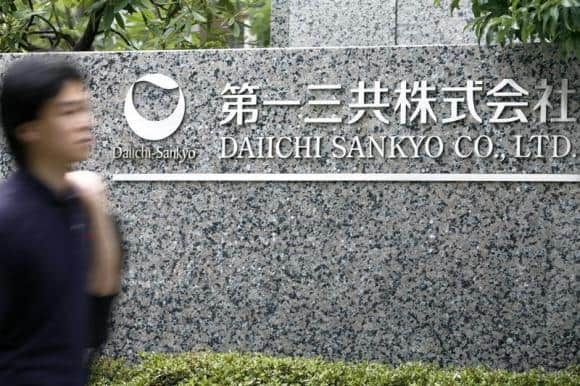
Daiichi Sankyo cuts 16% of US staff
pharmafile | March 27, 2015 | News story | Sales and Marketing | Benicar, Daiichi Sankyo, FDA, Ranbaxy, Welchol, ambit, colesevelam, cuts, olmesartan
Daiichi Sankyo is laying off 16% of its staff at its US commercial headquarters as the company braces itself for upcoming loss of exclusivity on big drugs.
Over the next two years the Japanese firm will face generic competition for two of its biggest products – blood pressure medicine Benicar (olmesartan), which accounted for 27% of Daiichi’s turnover last year with $2.6 billion in sales, and cholesterol drug Welchol (colesevelam).
The company has also faced some rough patches in recent years. It’s acquisition of Ranbaxy led to unexpected losses when the Indian company was forced to set aside $500 million to pay penalties relating to its manufacturing problems, and in January this year Daiichi itself was forced to pay $39 million to resolve claims that it paid kickbacks to doctors in the US.
Daiichi Sankyo says that the cuts – which are part of a ‘reorganisation’ of its Parsippany, New Jersey business – will only affect commercial operations, and will leave R&D and other areas untouched. However, further cuts are expected to affect US sales representatives in April, with reports suggesting that more than 30% of staff in this area could lose their jobs.
Speaking to Pharmafile its senior director of public affairs Kimberly Wix, says: “Following a thorough review of our business, we have made the decision to reorganize our operations, which includes the difficult step of select workforce reductions.
“We have taken many steps to support colleagues of ours who are being displaced. This is a necessary step towards addressing near-term challenges and positioning ourselves for long-term health and success. This will not affect our ability to serve patients or our mission and efforts to create and deliver innovative pharmaceuticals that improve people’s lives.”
The firm has indeed been taking steps to shore up its portfolio for the future, though – even if this means spending more money.
This month it signed a deal with AstraZeneca to jointly commercialise constipation drug Movantik (naloxegol) in the US. Daiichi paid $200 million up-front as part of the deal, and could make subsequent sales-related payments of up to $625 million.
Its biggest transaction before that was in September 2014, when the firm bought Ambit Biosciences for $410 million to add to its cancer research capabilities.
Meanwhile, in January its anti-clotting drug Savays (edoxaban) was approved by the FDA for reducing the risk of stroke and dangerous blood clots in patients with atrial fibrillation (AF).
Sun Pharma also completed its buyout of Ranbaxy earlier this week. This means that Daiichi is now the second largest shareholder in Sun, and the companies say that they will “work together to leverage this relationship for global business growth”.
Back to its current resourcing issue though, Wix told us: “These current workforce reductions refer only to the US Commercial staff within the US affiliate of the global Japanese company. Other operations with staff in the US, such as R&D, are not being affected by these announcements.”
George Underwood
Related Content

MRM Health’s ulcerative colitis treatment receives FDA Investigational New Drug clearance
Microbial Resource Management (MRM) Health has announced that its lead programme, MH002, has received Investigational …

Complement Therapeutics’ geographic atrophy treatment receives FDA Fast Track designation
Complement Therapeutics has announced that CTx001, its gene therapy treatment for geographic atrophy (GA) secondary …

Johnson & Johnson submits robotic surgical system for De Novo classification
Johnson & Johnson has announced the submission of its Ottava Robotic Surgical System for De …





